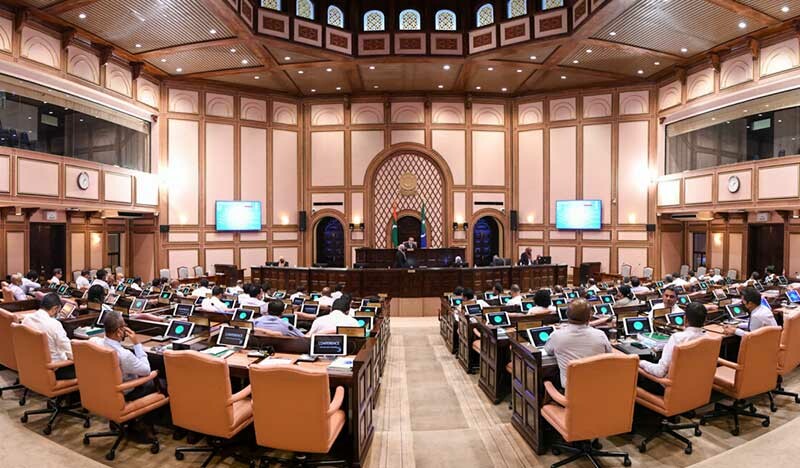New Bill Propose Creation of Government-Controlled Media Regulatory Body

A bill proposing the merger of the Maldives Media Council (MMC) and the Maldives Broadcasting Commission (MBC) has been submitted to Parliament.
The proposed legislation would create a unified body, the Maldives Media and Broadcasting Commission, and grant it the authority to impose fines on both individual journalists and media outlets.
The bill, introduced by Thulhaadhoo MP Abdul Hannan Aboobakuru, is set to undergo its first reading during today’s parliamentary session. If passed, the new commission would replace the existing Maldives Media Council (MMC) and Maldive Broadcasting Commission, consolidating their staff, assets, and responsibilities.
The proposed commission will consist of seven members, four appointed by the president with parliamentary approval, and three members elected by the media. This configuration effectively grants the government a majority within the commission. The president will also have the authority to appoint the president and vice-president of the commission from among its members, with the approval of Parliament.
Members of the proposed commission will serve five-year terms, with the possibility of reappointment for no more than two consecutive terms or a maximum of two non-consecutive five-year terms.
While the MBC is currently made up of seven members nominated by the president and approved by parliament, the media council is a 15-member body of elected representatives from the public and media community serving as a self-regulatory body for print and online media outlets.
The MBC has previously been subject to influence from the government, most notably during the former administration of President Abdulla Yameen, when the commission levied fines on tv stations over “defamation” charges. However, the media council, despite similar pressures, did not take any action against media outlets under its purview.
The bill sets out a range of measures that can be imposed on media organisations, including broadcasters and print media, if they breach the code of conduct set by the commission. These measures include the issuance of notices of correction and warnings, the publication of public corrections or content withdrawals, and the imposition of corrective actions or prohibitions to prevent further violations. In cases where content is deemed a threat to Islam, national security, public order, or public health, the commission may halt the broadcast of material or the publication of articles through relevant state authorities.
For repeated violations, the commission can seek a court order to revoke broadcasting licences or the registration of newspapers and magazines. Financial penalties for broadcasters may reach up to 10% of their previous year’s revenue, while fines for newspapers may range from MVR 5,000 to MVR 50,000.
The bill also specifies sanctions for individual journalists who breach the code of conduct, including fines between MVR 5,000 and MVR 10,000 if corrective actions are not taken within the specified period, as well as directives on how to address and rectify any violations.
The bill states that it’s aim is to “strengthen media regulation and promote responsible journalism”.
However, concerns have been raised regarding the potential for government influence over media regulation, given that four out of the seven commission members would be appointed by the president. Additionally, the provision granting the president the power to appoint the commission’s leadership has prompted questions about the independence of the regulatory body.







